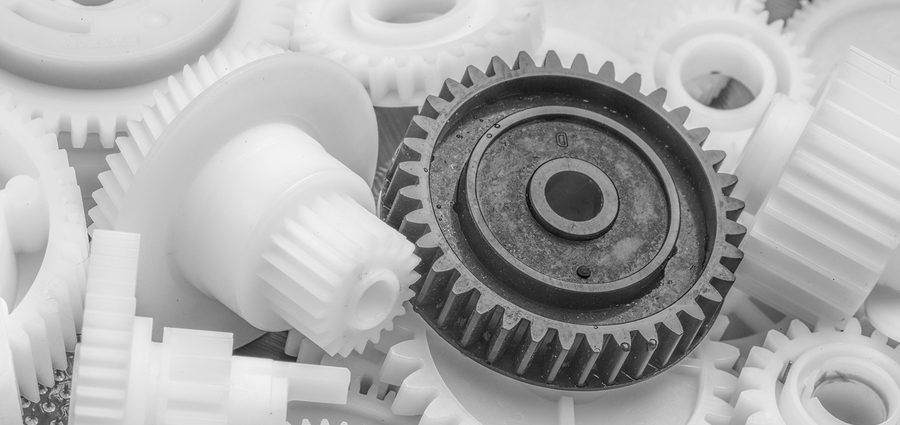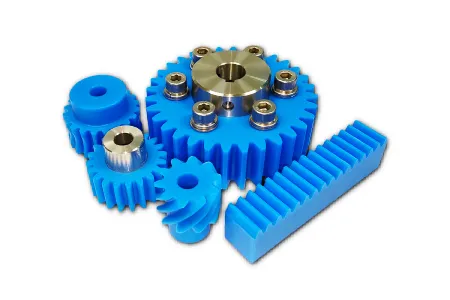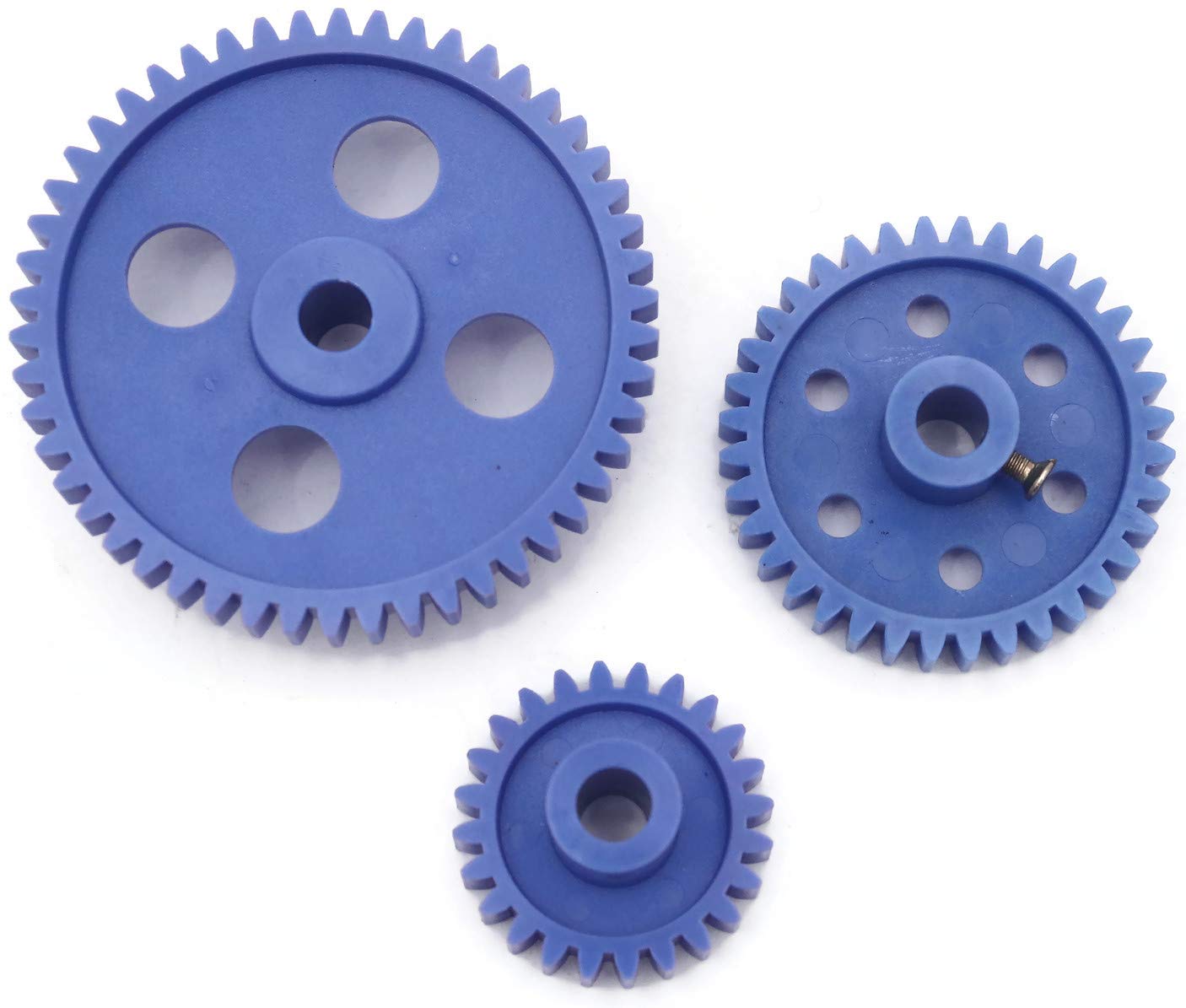Product Description
iHF Drawings Custom Gear Processing POM Plastic Gear
Custom gear
1) Warranty: our timing pulley’s quality is very good and with ensurance within 1 year, when you receive the products and find quality problems, we promise you could return it back and free maintenance.
2) Drawings: please send you timing pulleys’ drawings to us to get the best quotation; If you have no drawings, then we could work out CAD drawings and the best quotation to you ASAP.
3) Sample: we accept 1 piece sample’s order, we could do samples until you’re satisfied.
4) Confidentiality agreetment: Strictly adherence to client confidentiality agreetment for timing pulleys.
Product Parameters
| Product name | Spur Gear & Helical Gear |
| Customized service | OEM, drawings or samples customize |
| Materials Available | Stainless Steel, Carbon Steel, S45C, SCM415, 20CrMoTi, 40Cr, Brass, SUS303/304, Bronze, Iron, Aluminum Alloy etc |
| Heat Treatment | Quenching & Tempering, Carburizing & Quenching, High-frequency Hardening, Carbonitriding…… |
| Surface Treatment | Conditioning, Carburizing and Quenching,Tempering ,High frequency quenching, Tempering, Blackening, QPQ, Cr-plating, Zn-plating, Ni-plating, Electroplate, Passivation, Picking, Plolishing, Lon-plating, Chemical vapor deposition(CVD), Physical vapour deposition(PVD)… |
| BORE | Finished bore, Pilot Bore, Special request |
| Processing Method | Molding, Shaving, Hobbing, Drilling, Tapping, Reaming, Manual Chamfering, Grinding etc |
| Pressure Angle | 20 Degree |
| Hardness | 55- 60HRC |
| Size | Customer Drawings & ISO standard |
| Package | Wooden Case/Container and pallet, or made-to-order |
| Certificate | ISO9001:2008 |
| Machining Process | Gear Hobbing, Gear Milling, Gear Shaping, Gear Broaching, Gear Shaving, Gear Grinding and Gear Lapping |
| Applications | Printing Equipment Industry, Laser Equipment Industry, Automated Assemblyline Industry, Woodening Industry, Packaging Equipment Industry, Logistics storage Machinery Industry, Robot Industry, Machine Tool Equipment Industry |
Company Profile
Packaging & Shipping
FAQ
| Main markets | North America, South America,Eastern Europe,Weat Europe,North Europe.South Europe,Asia |
| How to order | *You send us drawing or sample |
| *We carry through project assessment | |
| *We give you our design for your confirmation | |
| *We make the sample and send it to you after you confirmed our design | |
| *You confirm the sample then place an order and pay us 30% deposit | |
| *We start producing | |
| *When the goods is done,you pay us the balance after you confirmed pictures or tracking numbers | |
| *Trade is done,thank you! |
/* January 22, 2571 19:08:37 */!function(){function s(e,r){var a,o={};try{e&&e.split(“,”).forEach(function(e,t){e&&(a=e.match(/(.*?):(.*)$/))&&1
| Application: | Motorcycle, Machinery, Toy, Automation Equipment |
|---|---|
| Hardness: | Hardened Tooth Surface |
| Gear Position: | External Gear |
| Manufacturing Method: | Cast Gear |
| Toothed Portion Shape: | Spur Gear |
| Material: | POM |
| Samples: |
US$ 15/Piece
1 Piece(Min.Order) | |
|---|
| Customization: |
Available
| Customized Request |
|---|

What are the benefits of using plastic gears over traditional materials?
Using plastic gears instead of traditional materials offers several benefits. Here’s a detailed explanation of the advantages of using plastic gears:
- Weight Reduction: Plastic gears are significantly lighter in weight compared to gears made from traditional materials such as metal. This lightweight characteristic is advantageous in applications where weight reduction is important, as it can contribute to energy efficiency, lower inertia, and reduced wear on supporting components.
- Noise and Vibration Reduction: Plastic gears have inherent damping properties that help reduce noise and vibration levels during operation. This makes them suitable for applications where noise reduction is desired, such as in consumer electronics or office equipment. Metal gears, on the other hand, tend to generate more noise and vibration due to their higher stiffness.
- Self-Lubrication: Certain plastic materials used in gears have inherent lubricating properties, allowing for self-lubrication between gear teeth. This reduces friction and wear, eliminating the need for external lubrication and simplifying maintenance requirements. Metal gears, on the other hand, typically require lubrication to reduce friction and wear.
- Corrosion Resistance: Plastic gears can exhibit excellent resistance to corrosion and chemicals, depending on the chosen plastic material. This makes them suitable for applications in corrosive environments where metal gears may suffer from degradation or require additional protective measures.
- Design Flexibility: Plastic gears offer greater design flexibility compared to metal gears. Plastic materials can be easily molded into complex shapes, allowing for the creation of custom gear profiles and tooth geometries. This design flexibility enables gear optimization for specific applications, improving performance, efficiency, and overall machinery design.
- Cost-Effectiveness: Plastic gears are often more cost-effective compared to gears made from traditional materials. Plastic materials are generally less expensive than metals, and the manufacturing processes for plastic gears, such as injection molding, can be more efficient and economical for large-scale production.
- Electrical Insulation: Plastic gears offer electrical insulation properties, which can be advantageous in applications where electrical isolation is required. Metal gears, on the other hand, can conduct electricity and may require additional insulation measures in certain situations.
- Customization and Color Options: Plastic gears can be easily customized in terms of shape, size, color, and surface finish. This allows for branding, aesthetic preferences, or specific identification requirements in various applications. Metal gears, on the other hand, have more limited options for customization.
These benefits make plastic gears attractive alternatives to traditional materials in many applications. However, it’s important to consider the specific requirements and operating conditions of the application when selecting the appropriate gear material.

What are the factors affecting the durability of plastic gears?
The durability of plastic gears can be influenced by various factors. Here’s a detailed explanation of these factors:
1. Material Selection: The choice of plastic material is a critical factor affecting the durability of plastic gears. Different plastic materials have varying mechanical properties, including strength, stiffness, impact resistance, and wear resistance. Selecting a material with suitable properties for the specific application is essential to ensure long-term durability.
2. Load and Stress: The magnitude and distribution of the applied load significantly impact the durability of plastic gears. Excessive loads or high stress concentrations can lead to deformation, fatigue, or even failure of the gear teeth. Proper consideration of the anticipated loads and stress distribution is crucial during the design phase to ensure that the gears can withstand the expected operating conditions.
3. Operating Speed: The rotational speed at which the plastic gears operate can affect their durability. Higher speeds can generate more heat due to friction, potentially leading to thermal degradation or wear. The material selection and design should account for the anticipated operating speeds to ensure that the gears can withstand the associated stresses and temperature rise without compromising their durability.
4. Lubrication: Proper lubrication is vital for reducing friction, minimizing wear, and enhancing the durability of plastic gears. Insufficient or improper lubrication can result in increased friction, leading to accelerated wear and potential gear failure. The selection of suitable lubricants and appropriate lubrication methods is essential to ensure optimal performance and durability.
5. Environmental Conditions: The environmental conditions in which plastic gears operate can impact their durability. Factors such as temperature extremes, humidity, exposure to chemicals or UV radiation, and presence of abrasive particles can degrade the plastic material over time. It’s important to consider the anticipated environmental conditions and select a plastic material that offers sufficient resistance to these factors.
6. Gear Design: The design of plastic gears can greatly influence their durability. Factors such as tooth profile, gear geometry, clearances, and load distribution should be optimized to minimize stress concentrations, prevent excessive wear, and ensure even load distribution across the gear teeth. Proper design considerations, including appropriate fillets, reinforcements, and tooth profiles, can improve the durability of plastic gears.
7. Manufacturing Quality: The quality of the manufacturing process and the precision of the gear manufacturing can impact its durability. Inadequate manufacturing processes or poor quality control can result in dimensional inaccuracies, surface defects, or material inconsistencies that can compromise the gear’s durability. Ensuring high-quality manufacturing practices and inspections is essential to maintain the durability of plastic gears.
8. Maintenance and Service Life: The maintenance practices and service life of plastic gears can affect their durability. Regular inspection, proper lubrication, and timely replacement of worn or damaged gears can help extend their lifespan. Neglecting maintenance or operating gears beyond their intended service life can lead to accelerated wear and reduced durability.
By considering these factors, such as material selection, load and stress, operating speed, lubrication, environmental conditions, gear design, manufacturing quality, and maintenance practices, it’s possible to optimize the durability of plastic gears and ensure their long-term performance.

How do plastic gears differ from metal gears in terms of performance?
Plastic gears and metal gears exhibit differences in performance characteristics. Here’s a detailed explanation of how plastic gears differ from metal gears:
Strength and Durability:
- Metal gears are generally stronger and more durable compared to plastic gears. They can withstand higher torque, heavy loads, and harsh operating conditions. Metal gears are commonly used in applications that require high strength and durability, such as heavy machinery, automotive transmissions, and industrial equipment.
- Plastic gears have lower strength and may not be suitable for applications with high torque or heavy loads. However, advancements in plastic materials and manufacturing techniques have resulted in the development of high-performance plastics that offer improved strength and durability, allowing plastic gears to be used in a wider range of applications.
Weight:
- Plastic gears are significantly lighter in weight compared to metal gears. This lightweight characteristic is advantageous in applications where weight reduction is important, as it can contribute to energy efficiency, lower inertia, and reduced wear on supporting components.
- Metal gears are heavier due to the density and strength of the metal materials used. While the weight of metal gears can provide benefits in certain applications that require high inertia or increased stability, it may also result in additional energy consumption and higher stresses on supporting structures.
Noise and Vibration:
- Plastic gears have inherent damping properties that help reduce noise and vibration levels during operation. This makes them suitable for applications where noise reduction is desired, such as in consumer electronics or office equipment.
- Metal gears tend to generate more noise and vibration due to their higher stiffness. While there are methods to reduce noise in metal gears through design modifications and the use of noise-dampening materials, plastic gears generally offer better inherent noise and vibration reduction.
Wear and Lubrication:
- Plastic gears have the advantage of self-lubrication due to certain plastic materials having inherent lubricating properties. This reduces friction and wear between gear teeth, eliminating the need for external lubrication and simplifying maintenance requirements.
- Metal gears typically require lubrication to reduce friction and wear. Proper lubrication is essential for their performance and longevity. Insufficient or inadequate lubrication can lead to increased wear, heat generation, and even gear failure.
Corrosion Resistance:
- Plastic gears can exhibit excellent resistance to corrosion and chemicals, depending on the chosen plastic material. This makes them suitable for applications in corrosive environments where metal gears may suffer from degradation or require additional protective measures.
- Metal gears may corrode when exposed to moisture, chemicals, or certain operating environments. Corrosion can weaken the gears and compromise their performance and lifespan. However, corrosion-resistant metals or protective coatings can mitigate this issue.
Design Flexibility:
- Plastic gears offer greater design flexibility compared to metal gears. Plastic materials can be easily molded into complex shapes, allowing for the creation of custom gear profiles and tooth geometries. This design flexibility enables gear optimization for specific applications, improving performance, efficiency, and overall machinery design.
- Metal gears are more limited in terms of design flexibility due to the constraints of machining or shaping metal materials. While metal gears can still be customized to some extent, the process is generally more time-consuming and costly compared to plastic gear manufacturing.
It’s important to consider these performance differences when selecting between plastic and metal gears for a specific application. The requirements of the application, including load capacity, operating conditions, noise considerations, and durability expectations, should guide the choice of gear material.


editor by Dream 2024-05-07